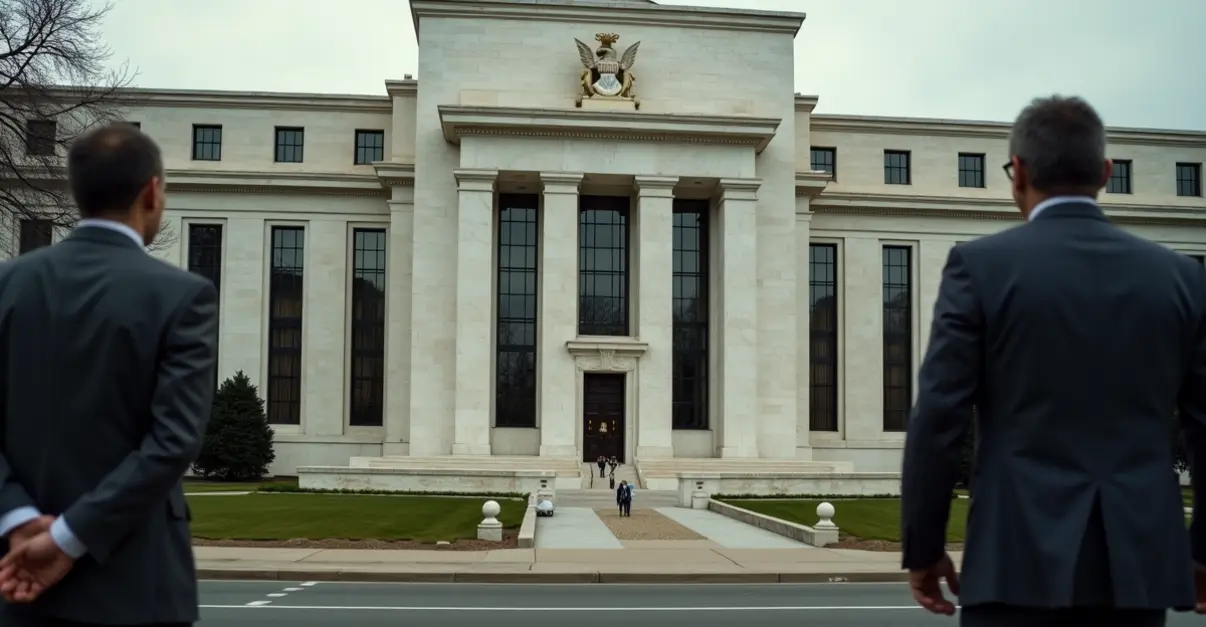Federal Reserve's Historic Crypto Conference Marks Policy Shift
In a landmark moment for the cryptocurrency industry, Federal Reserve Governor Christopher Waller delivered a groundbreaking speech at the central bank's first-ever Payments Innovation Conference in Washington, signaling a dramatic shift in the Fed's approach to digital assets. The conference, which brought together major players from both traditional finance and the crypto sector, represented what Waller described as 'a new era for payments infrastructure' in the United States.
Crypto Integration into Financial System
Waller's comments marked a significant departure from the Fed's traditionally cautious stance toward cryptocurrencies. 'This is a recognition that crypto and distributed ledgers are no longer on the sidelines but are woven into the fabric of our financial system,' Waller stated during his keynote address. The Fed governor specifically welcomed the DeFi sector to the table, noting that 'the DeFi sector is no longer viewed with suspicion or disdain. Today, you are welcomed into the conversation about the future of payments in the United States — on our own playing field.'
According to Waller, the Federal Reserve is actively exploring how blockchain technology, tokenization, smart contracts, and even artificial intelligence could strengthen the central bank's infrastructure. The goal, he explained, is to understand how these technologies can contribute to faster and more efficient payment systems that benefit both consumers and financial institutions.
Bitcoin as Digital Gold
In a separate interview, Waller addressed Bitcoin's role in the financial ecosystem, describing it as 'electronic gold' that serves primarily as a store of value. 'I have always argued that Bitcoin would ultimately become something like electronic gold. It is a store of value. It promises no return. You buy it and hold it in the hope that it rises. Exactly what you do with commodities like gold. That is it. There is nothing wrong with that,' Waller explained.
This characterization aligns with Bitcoin's evolving narrative from its early days as a potential currency replacement to its current status as a digital commodity. Like gold, Bitcoin is scarce — with a fixed supply of 21 million coins — and operates independently of traditional banking systems and monetary policy makers. Waller noted that both Bitcoin and gold lack intrinsic value but can exist as 'a kind of belief equilibrium where you buy something because you believe someone else will pay more for it later.'
Revolutionary Banking Proposal
The most significant announcement came when Waller proposed a new type of bank account at the Federal Reserve: the so-called 'skinny master account.' This innovative approach would provide fintech companies and crypto players like Ripple, Custodia, and Kraken with limited access to the Fed's payment system.
These accounts would not offer interest or emergency credit but would enable direct settlement of payments without the need for commercial bank intermediaries. According to Waller, this could lead to lower costs, faster transactions, and reduced risk of 'debanking' — where crypto companies lose access to banking services. The proposal represents a potential game-changer for the industry, which has long struggled with banking access challenges.
Policy Reversal and Market Impact
Waller's statements mark a sharp contrast with the Fed's years of cautious approach toward cryptocurrency. In recent months, the central bank has quietly withdrawn guidelines that discouraged banks from working with digital assets. The warning about 'reputational risk' has also disappeared from the supervisory framework — a vague term that critics say was used for years to keep crypto companies out of the banking system.
The timing of this policy shift coincides with broader governmental changes in cryptocurrency approach. As detailed in the U.S. Strategic Bitcoin Reserve initiative, the current administration has taken significant steps toward embracing digital assets at the national level.
Industry Response and Future Outlook
Crypto industry leaders have welcomed the Fed's new approach, seeing it as validation of years of development and innovation. The proposal for skinny master accounts could potentially revolutionize how crypto companies interact with the traditional financial system, providing them with the banking access they've long sought.
As the Federal Reserve continues to explore blockchain technology's potential, Waller emphasized that the central bank remains committed to maintaining financial stability while embracing innovation. 'We are open to understanding how these technologies can make our payment systems more efficient and accessible while ensuring they meet our high standards for safety and reliability,' he concluded.
The conference represents a watershed moment for cryptocurrency regulation and acceptance in the United States, potentially setting the stage for broader integration of digital assets into the mainstream financial system.

 Nederlands
Nederlands
 English
English
 Deutsch
Deutsch
 Français
Français
 Español
Español
 Português
Português










